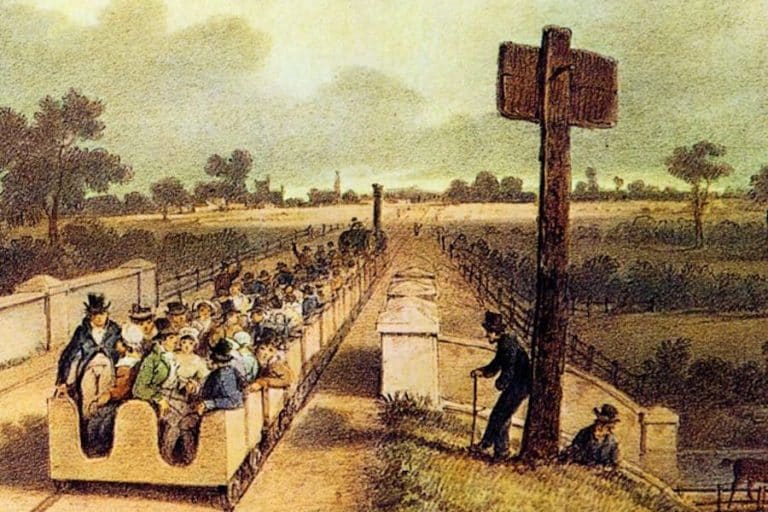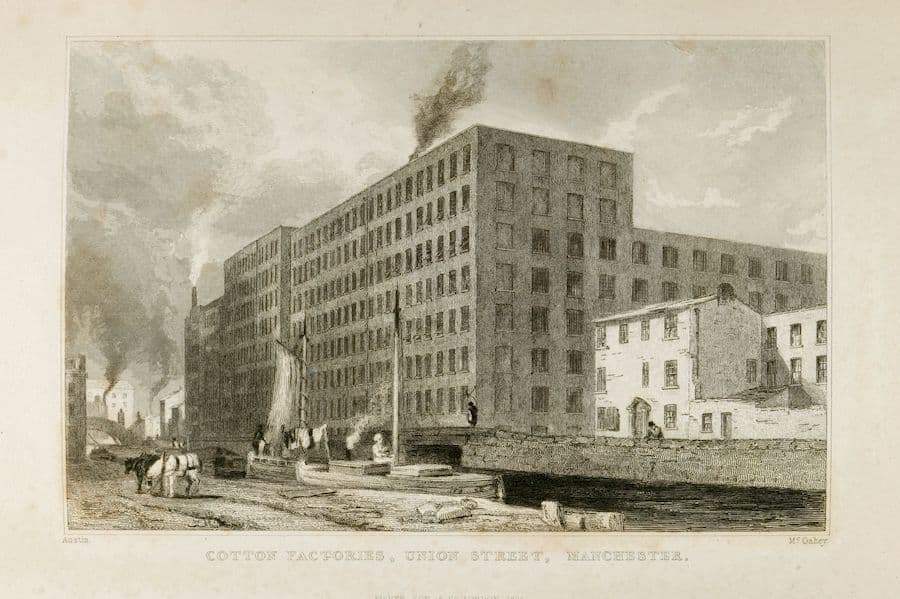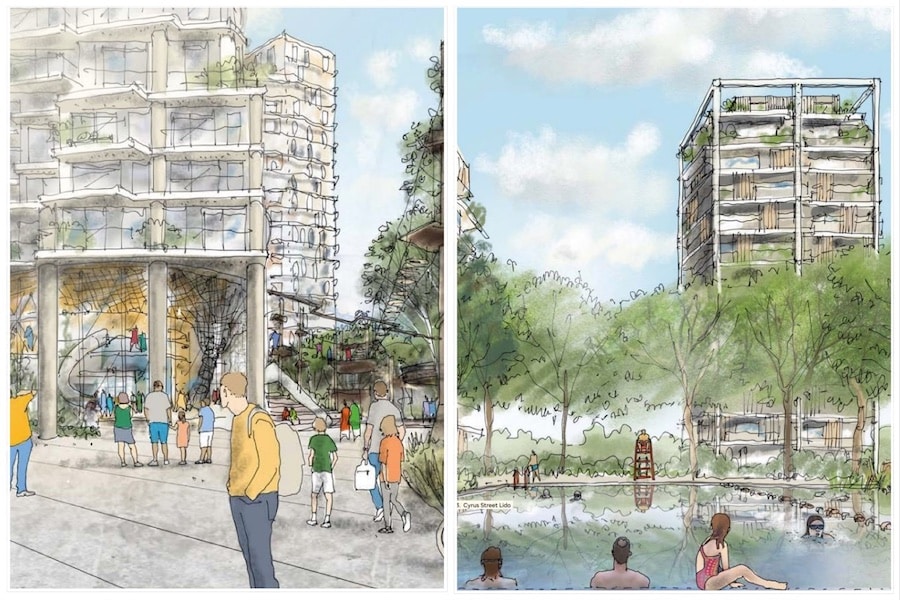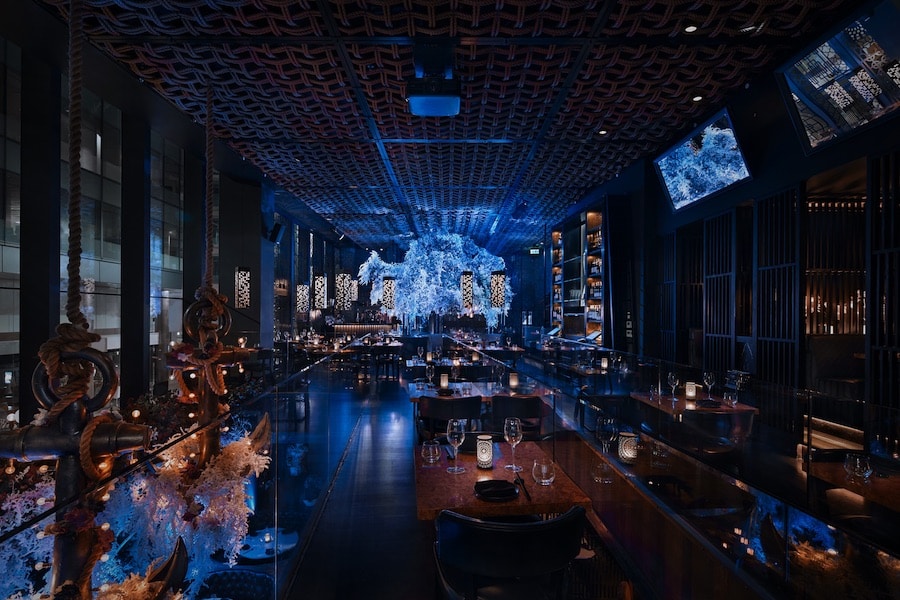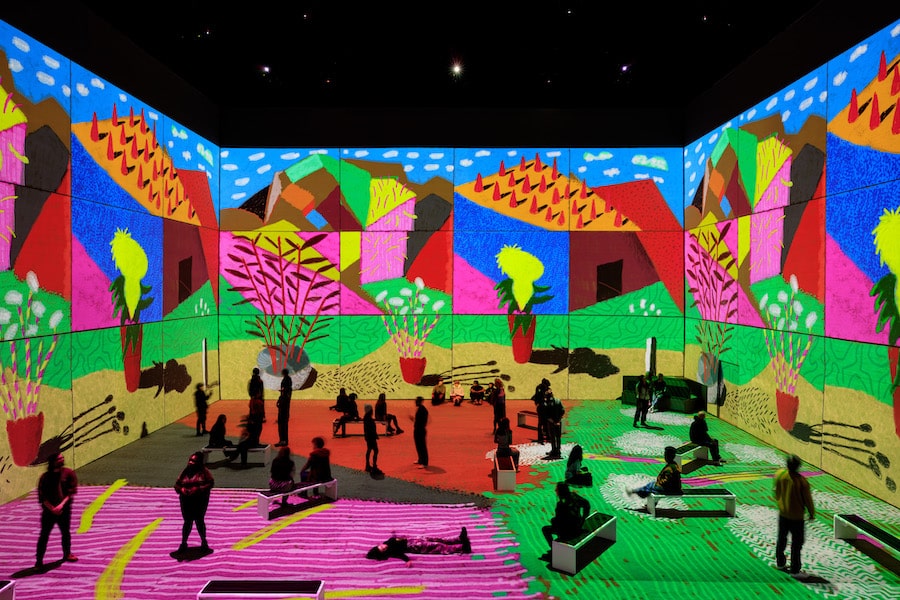Manchester is a ‘city of sanctuary’ – but what does that mean?
- Written by Thom Bamford
- Last updated 7 seconds ago
- City of Manchester, Community, Featured, People
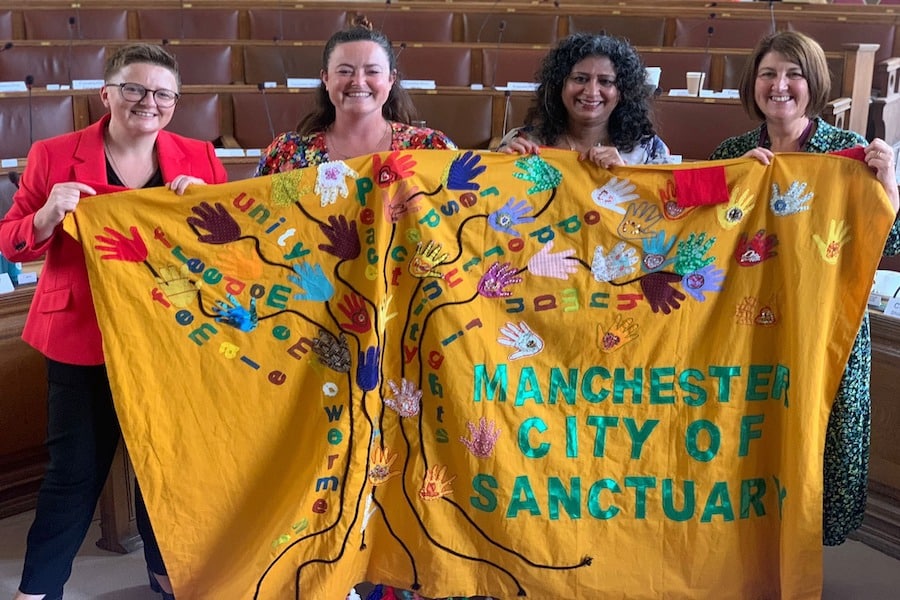
In a world where forced migration and displacement are pressing global issues, Manchester stands tall as a place where people can seek sanctuary and be welcomed no matter what they have been through.
By formally becoming a Local Authority of Sanctuary in October 2024, Manchester has reaffirmed its commitment to welcoming and supporting those seeking safety from danger. This initiative is not just a badge of honour but a deep-seated pledge to provide dignity, opportunity, and inclusion for people seeking sanctuary in the city.
But what does that mean in a practical sense?
Local Authority of Sanctuary
Manchester’s multicultural roots run deep, with over 43% of its population identifying as being from an ethnic minority and more than 90 different ethnic groups calling the city home. This diversity is not only a reflection of the city’s past but also a cornerstone of its present and future.
Historically, Manchester has welcomed people from all corners of the globe, from Irish immigrants during the Industrial Revolution to more recent arrivals from war-torn regions.
“We live in a vibrant and brilliant city because of the contributions our communities make to our history, culture, and economy,” said Councillor Joanna Midgley, Deputy Leader for Manchester City Council.
The road to local Authority of Sanctuary
The journey to achieving Local Authority of Sanctuary status began with a unanimous motion passed by Manchester City Council in July 2023. This milestone marked the city’s formal commitment to creating a culture of welcome and inclusion for people seeking sanctuary. It also catalysed the development of a comprehensive three-year strategy to address the challenges faced by this often-overlooked population.
Who Are the People Seeking Sanctuary?
Manchester’s strategy embraces a broad definition of people seeking sanctuary, focusing on their humanity rather than their immigration status. This includes asylum seekers, refugees, and individuals displaced by war, natural disasters, or political unrest.
As of late 2024, Manchester was home to:
1,627 asylum seekers.
844 Ukrainians under the Homes for Ukraine scheme.
437 Afghan individuals through resettlement pathways.
Approximately 9,662 Hong Kong British Nationals (Overseas)
Additionally, many individuals with No Recourse to Public Funds (NRPF) and unaccompanied children cared for under the Children’s Act 1989 also call Manchester home.
Listening to the refugee community
To ensure its strategy reflects the real needs and aspirations of those it serves, Manchester City Council undertook an extensive engagement process in 2024.
This included structured conversations with people with lived experience, workshops, surveys, and policy panels. Key areas of focus emerged, including: Access to healthcare and mental health support, education and employment opportunities, housing and homelessness services and community integration and cultural inclusion.
Importantly, the engagement process was designed to avoid traumatising participants, ensuring that their stories and insights were gathered with respect and sensitivity.
So, whats the plan?
The city’s three-year action plan is both dynamic and comprehensive, evolving to meet changing needs. Key pillars include:
1. Access to Services
Manchester is committed to providing well-designed, inclusive services that empower people seeking sanctuary. This includes ensuring access to interpreters, translated materials, and user-friendly information about navigating the city’s systems.
2. Feeling Welcome
Belonging is at the heart of Manchester’s vision. Initiatives like peer support programs and celebrating the contributions of sanctuary seekers aim to create a culture of compassion and understanding.
3. Empowering Lived Experience
A key focus is involving people with lived experience in shaping policies and services. This includes prioritising the voices of children and young people, aligning with Manchester’s commitment to becoming a UNICEF Child-Friendly City.
4. Trauma-Informed Practices
Recognising the hardships endured by people seeking sanctuary, the city emphasises trauma-informed training for its staff. This ensures interactions are characterised by dignity and respect, fostering trust and understanding.
Addressing health and housing challenges
Two critical areas identified for immediate action are mental health and housing. The Joint Strategic Needs Assessment (JSNA) revealed significant gaps in mental health support, particularly for unaccompanied children and young adults living in temporary accommodations. Initiatives like free gym access for asylum seekers and mental health services tailored to young people aim to bridge these gaps.
On the housing front, Manchester is working to ensure safe, secure accommodations for all, regardless of immigration status. Efforts are also underway to address homelessness among recently recognised refugees and those whose asylum claims have been refused.
Celebrating contributions and challenging narratives
One of Manchester’s most inspiring initiatives is its focus on celebrating the contributions of people seeking sanctuary. From cultural festivals to employment success stories, the city is challenging negative stereotypes and promoting the positive impacts of migration.
Councillor Midgley emphasised this in her statement: “Manchester has always risen to a challenge, and its welcoming, caring, and supportive culture will ensure it continues to support people seeking sanctuary.”
A model for other cities?
Manchester’s journey offers valuable lessons for other cities aspiring to become havens for those in need. Its emphasis on community engagement, cross-sector collaboration, and trauma-informed practices sets a gold standard for inclusion and resilience.
As global challenges continue to displace millions, Manchester’s commitment to sanctuary serves as a reminder of the power of compassion and the strength of community. In the words of Councillor Midgley, “Together, we can work to make Manchester a welcoming and supportive city for those seeking sanctuary in our city.”
As Manchester continues its journey as a Sanctuary City, it aims to influence national and global discourse on migration. By lobbying for systematic changes—such as ensuring access to public funds regardless of immigration status—the city is advocating for a more equitable and compassionate society.
- This article was last updated 7 seconds ago.
- It was first published on 23 January 2025 and is subject to be updated from time to time. Please refresh or return to see the latest version.
Did we miss something? Let us know: [email protected]
Want to be the first to receive all the latest news stories, what’s on and events from the heart of Manchester? Sign up here.
Manchester is a successful city, but many people suffer. I Love Manchester helps raise awareness and funds to help improve the lives and prospects of people across Greater Manchester – and we can’t do it without your help. So please support us with what you can so we can continue to spread the love. Thank you in advance!
An email you’ll love. Subscribe to our newsletter to get the latest news stories delivered direct to your inbox.
Got a story worth sharing?
What’s the story? We are all ears when it comes to positive news and inspiring stories. You can send story ideas to [email protected]
While we can’t guarantee to publish everything, we will always consider any enquiry or idea that promotes:
- Independent new openings
- Human interest
- Not-for-profit organisations
- Community Interest Companies (CiCs) and projects
- Charities and charitable initiatives
- Affordability and offers saving people over 20%
For anything else, don’t hesitate to get in touch with us about advertorials (from £350+VAT) and advertising opportunities: [email protected]

“A spectacular showcase of storytelling” Manchester Film Festival reveals 2025 line up
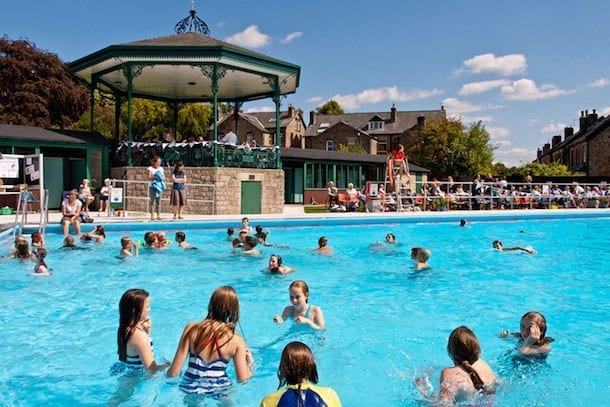
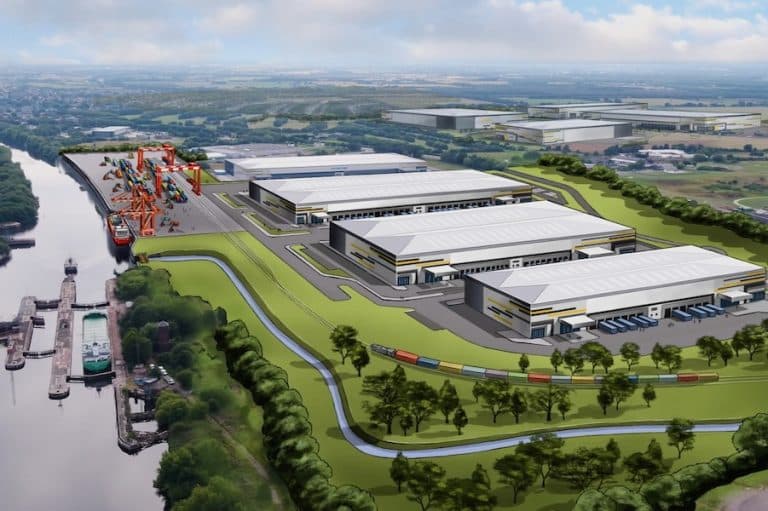
The huge plan to create 5,000 new jobs in Salford and pump millions into city
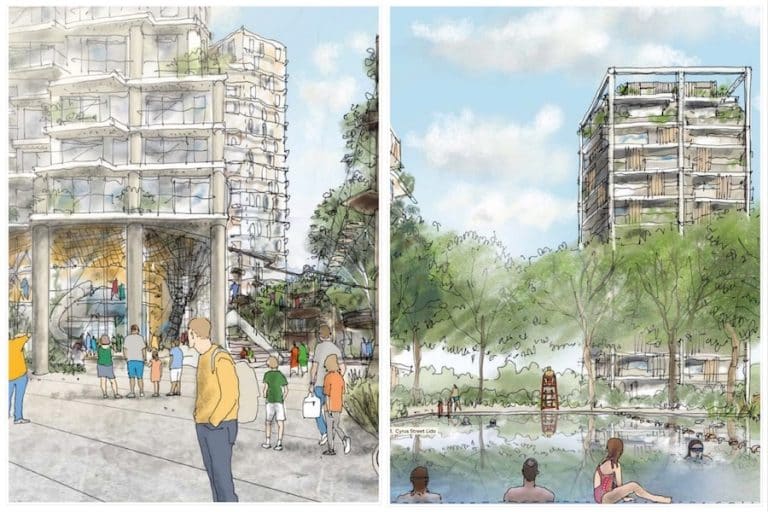
Is this the most ambitious regeneration project in Manchester’s history?
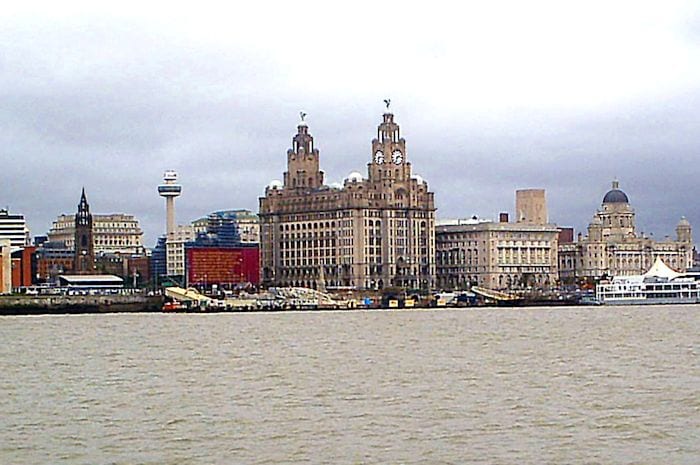
Liverpool and Manchester: why we should be friends with the city down the road
